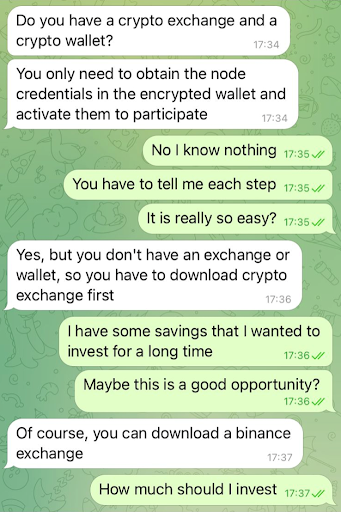Sock Puppets Aren’t Just for Government any more.
Headline: What is a “sock puppet” when it comes to cryptocurrency?
Date: 7/31/2022
Body: Everybody remembers that great Pets.com commercial with the cheesy sock puppet. Great stuff and the marketing department can be justly proud of their achievement with this very cute little character. But the sock puppets we are speaking of here are less cute, and adorable. These sock puppets usually represent fake accounts, set up by somebody connected with a business; An example might help. Let’s assume you own a doughnut shop. Every now and then, a nice customer will write a Yelp review, explaining how “the cake doughnuts are fluffy clouds of pastry, and the cream-filled doughnuts explode with rich flavor.” And they REALLY mean it. But, let’s just say that you don’t feel that you have enough positive reviews. What’s to stop you or somebody like you (lacking moral scruples) from opening several free e-mail accounts under fake names, and leaving positive comments on your bakery page, from these fake accounts? Nothing. There is nothing stopping you, and the accounts that your doppelganger had to open up, are called “sock puppets.” Bakeries do this, authors do this to promote their book sales; It happens all the time. Many claim that this is ok due to a moral relativism argument. But it seems to me like an undisclosed attempt to sell more units by using a fake identity. And, that, gentle reader, smells like fraud to me.
But it’s interesting when you see how these fake accounts interact with human nature. Two different possible arguments come up here. First, some suggest that when this kind of fraud is done, it is very obvious, and therefore does little damage. I argue that this is not a cogent point because, often people are rushed during buying decisions, and don’t’ have the mental space to think rationally about such things. So, only the surface positive content is processed in their brain. The second use of sock puppets is to leave false information about your competitors. If you owned that bakery, the local pie shop might be your biggest competitor. If you were desperate, you might go out and get a number of sock puppet accounts and write very poor reviews of your competitor.
OK, but this could only happen to neighborhood businesses like pie shops, right?
Wrong. There was a report in an Irish newspaper that a very major hotel chain “encouraged” (yeah, we can all imagine the Tony Robbins like speech here, right?) dozens of employees to provide positive reviews of the chain’s hotels on the site, TripAdvisor. Per internal communication, the leaders wanted, “a more pro-active management of the reviews on Trip Advisor.” Wow, that’s pretty blatant. Per Jayne O’Donnell of USA Today, “Deceptive review sites are among the first things consumers searching for reviews on products including juicers or treadmills would find, but they come and go so fast, ,’it’s difficult for regulators to police them.”
So, what should you consider doing to keep from being suckered?
Be VERY suspicious of an anonymous review.
Confirmed purchasers onlyà Some sites only allow people who have used a product or service to rate it. This seems like common sense to me. But, this is not always so.
Book ‘em, Danno
I would dearly love to say this to people who use sock puppet accounts to artificially jack up their popularity and denigrate competitors. But, being a free society, I cannot. The best we can do is be aware of how often this happens. And it happens all the time, especially on Amazon. (Sorry, Amazon. You’re awesome for most stuff, praise be to Lord Bezos. But, alas, you’re not perfect.) Sometimes it is the mean spirited leaving of glowing feedback for one’s self, and leaving terrible feedback for competitors. Sometimes, it is more like teamwork. Let’s say there was author A and author B, writing in a similar cognate area. Both have new books about to be published, and A and B have a conversation. Some sort of “Hey, you write me a good review, and I’ll write you a good review.” Happens. If both genuinely like the other’s book, then all is well. However, let’s say that B thinks A’s book is trash and ripped it up to use in her bird cage. B is still hoping to receive a glowing recommendation from A, so, author B is not about to reveal their true feelings about A’s book. So, the ratings will be artificially good.
Don’t believe me? Well, maybe you shouldn’t. Maybe you should instead, believe the experience of one of the most prolific authors EVER. Mr. Stephen King is the Lord and Master of horror thrillers. Even people not “into reading” recognize his name. It has become somewhat of a half-joke within the industry that if you could slap his name on the cover of sub-par literary pap, you would still have a spot on the New York Times Bestseller List. Well, it would seem that this was proven feasible. Mr. King wrote several books under a pseudonym, Richard Bachman. Same author, same abilities, but Bachman’s sales numbers foundered until King outed himself as Bachman. My point is that sock puppets, even when used intentionally concerning one’s self, make a real difference. King himself commented upon this:
You try to make sense of your life. Everyone does it, but perhaps people who have extraordinarily lucky or unlucky lives do it a little more. Part of you wants to think that you must have been one hardworking S.O.B. or a real prince or maybe even one of the Sainted Multitude if you end up riding high in a world where people are starving. But there’s another part that suggests it’s all a lottery, a real-life game-show not much different from “Wheel of Fortune.” It is for some reason depressing to think it was all–or even mostly–an accident.
Yeah, the Internet is full of trolls, tell us something we didn’t know…
Well, it’s not so much as “you didn’t know” as it is, “you never thought about.” Sock puppets can be easily involved in cryptocurrencies, and often, the stakes are much higher, so the technical acumen is much higher. In many cases, hackers will use “bots” to write fake news articles engineered to ensure many clicks. So, let’s assume that this happened in the books example. Far too many of one book would be sold, and far too few of the other would be sold. Good or bad for the individual authors, sure, but pretty harmless to the multitudes. But, just think if one of these bots (and often thousands are used in concert) is programmed to talk up or talk down about an Initial Coin Offering, people could make lots of money on any such mis-priced currency. And, where there are winners, there are sure enough losers also. In fact, if too many trolls get into cryptocurrency, could we begin to lose faith in our fiat currencies? (In fact, a battalion of bots is called a “botnet.”) Sometimes, the bots are temporarily taken over by a human controller, and these are called, “cyborgs.” This hybrid can give nuanced and occasional novel responses, making a bot harder to spot.
So, what can I do to make sure that it’s not a bot I am responding to?
You can do a lot, in fact:
Check the profile informationà Often, when a bot is controlling, the account name is a random-looking string of numbers and letters.
Check to see when they joinedà If it’s very recent, there is a good chance that this is a bot, designed to fake results.
Check the number of followersà If the account is following thousands, and only followed by a few, it might very well be a bot.
Check the frequency of postingà If they post too often, that is an indication that it might be a bot.
Check the quality of contentà A bot will often mangle language.
Check the number of hashtags usedàOften, to increase the number of hits, bot accounts will note a tremendously large number of hashtags.
It’s not 100% effective, but, if you see 2 or 3 of these “warning flags” consider carefully whether a sock puppet account might be involved.
The Verdict
In the Old West, it was legal for a sheriff to put together a posse of civilians and temporarily deputize them, for the purpose of capturing one suspect. Given the people are not trained law enforcement officers, I don’t encourage large groups of citizens to arm themselves in the general public. But, on this one subject, it will genuinely take collective action of every netizen to keep this suspect at bay. If you suspect that a source is a bot, report it to Facebook, and identify it in whatever way you have access to. It might seem like a game of Whack-a-Troll, where one is shut down and two more pop up. But, each one you report is not there to misdirect a citizen who might not be as careful.
REFERENCES
Editor’s Note: Please note that the information contained herein is meant only for general education: This should not be construed as Tax Advice. Personal attributes could make a material difference in the advice given, so, before taking action, please consult your tax advisor or CPA.



